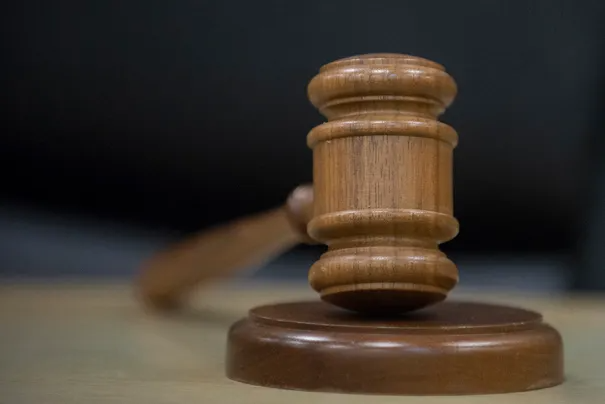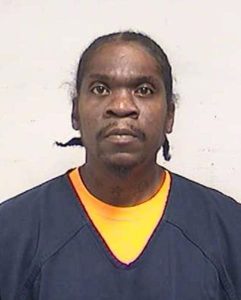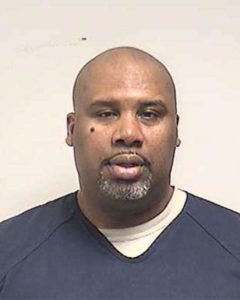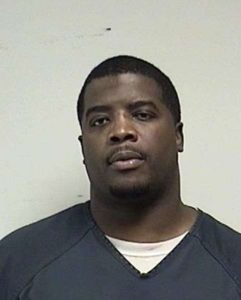
(Submitted Photo)
Kenosha criminal defense attorney Michael Cicchini recently had his new article, “The Preliminary-Hearing Swindle: A Crime Against Procedure,” accepted for publication by the Loyola of Los Angeles Law Review. We asked him about his article, and whether the preliminary hearing could have prevented the bogus prosecution of Kenosha college student Marissa Chon.
Q: Near the beginning of your article on preliminary hearings, you quote Ambrose Bierce. Who is he and what did he say?
I’m glad you noticed that! Ambrose Bierce was a brilliant newspaper editor and author in the late 1800s and early 1900s. He was famously cynical about the American legal system. He defined litigation as “a machine which you go into as a pig and come out of as a sausage.” And he described a litigant as “a person about to give up his skin for the hope of retaining his bones.” I think Bierce would have been especially sympathetic toward the modern criminal defendant, a litigant who is dragged into the machinery against their will, squealing every step of the way.
Q: Tell me about the preliminary hearing part of the machinery. What is the prelim supposed to accomplish?
The prelim is an adversarial, evidentiary hearing in felony cases only. It is supposed to serve as a check on prosecutorial power. Felonies are so serious that we don’t trust prosecutorial judgment; there is supposed to be a check, a screening mechanism to weed out the garbage cases. The case law is riddled with grandiose pronouncements about the prelim. My favorite is that the prelim “prevents hasty, malicious, improvident, and oppressive prosecutions.” It is supposed to save the defendant from the life-ruining cost and anxiety of being prosecuted for a felony when the charge isn’t warranted. It is supposed to save the taxpayers from the expense of clogging up the system with baseless prosecutions. To return to Bierce’s description, the prelim is supposed to be the brake on the litigation machine.
Q: In your article you say that the prelim has been eliminated. They happen every morning. What do you mean?
In Kenosha, we still schedule the prelim, but the adversarial, evidentiary hearing with witnesses has been replaced by a mere reading of the criminal complaint. The prosecutor has a person, who is completely uninvolved in the case, read and memorize the prosecutor’s complaint. That person then takes the witness stand and recites what the prosecutor wrote in it. And that’s the entire prelim. But as I explain in the article, that violates statutes, case law, and sometimes even the constitution. It’s also one of the most absurd things I’ve ever seen. The defense lawyer and magistrate have already read the complaint, so why are we having this uninvolved person memorize it and try to tell us what’s in it? Not only have we read it, be we all have the document right in front of us! The whole thing is a form-over-substance ploy designed to swindle the defendant out of his prelim—hence my article’s title. I think the great Ambrose Bierce, if he were alive today, would approve of it.
Q: Are they doing that in other Wisconsin counties as well?
Yes, but some counties are more honest about it. They basically say, Look, we’re going to take away your prelim, and we’re not going to bother having a person memorize the complaint and then talk about it from the witness stand. We’re all capable of reading, so we’re just going to move the complaint into the record. In my opinion, somewhat paradoxically, taking the swindle this one step further has a perverse sort of honesty about it. They’re taking away the prelim, yes, but they’re telling you what they’re doing. There’s no pretending, and there’s no illusion of having a prelim—no façade.
Q: That’s a lot to take in. What’s the bottom line to all of this?
It is a lot. But the bottom line is this. In either version of the swindle, instead of checking prosecutorial power, the judiciary now bows down to it and blindly accepts whatever the prosecutor wrote in the complaint. The practical result is that more junk cases are clogging up the courts’ calendars. There are also more people in jail or on felony bail who shouldn’t be. This ruins lives, destroys personal finances, and costs a lot of taxpayer money. These are the precise things that the prelim was designed to prevent.
Q: Do you think anyone will change this and restore the prelim?
One of our state senators has taken an interest in my article, and he was surprised to learn how the courts are butchering the statutes that the legislature has passed. He is looking into some things, and hopefully some good comes of that, but I don’t know. As far as the courts, the recently-retired judge Bruce Schroeder, who presided over the Kyle Rittenhouse trial, was absolutely disgusted by the preliminary-hearing swindle. There were times when he wouldn’t stand for this nonsense. But he’s gone, and the swindle is now firmly ingrained. It is so ingrained that I think newer Wisconsin lawyers would be shocked to learn how the prelim is supposed to work, did work, and can work. But in other states, the hearing still does its job of weeding out bunk cases.
Q: I know you like the Frank Carson case. Is that what you’re referring to?
Yes, that’s my favorite example! In California v. Frank Carson, some really goofy prosecutors convinced themselves that criminal defense attorney Frank Carson enlisted his wife, his daughter, two local business owners, and three police officers to murder a petty scrap metal thief. The prosecutors charged everyone—even the cops! Because of the number of defendants, the prelim actually took multiple hearings over several months to complete. But after hearing the evidence, the judge dismissed the murder charge for some defendants and dismissed entire cases for others. Frank Carson didn’t get his case dismissed, but the evidence at the prelim was so weak that the judge reduced his high cash bail to a signature bond and he was released from custody on the spot. Carson was then fully acquitted at trial.
Q: Could the prelim have helped Marissa Chon, the young college student who was falsely accused and prosecuted for driving drunk and crashing a car in Kenosha?
Yes, I read that story on KCE, you’ll be happy to know. Imagine if, instead of reading the complaint at the prelim, the responding officers testified about their investigation. Eyewitness might even be called to the stand. And the defense would get to cross-examine everyone. Then imagine that one of the police officers testifies, as he said during the investigation, There’s no way that Chon was driving the car! Now, we shouldn’t invoke Bierce’s imagery of pigs being turned into sausages for a case involving such a nice young lady, but you get the picture. The felony prosecution had disastrous effects on her and her family. A proper prelim could have stopped that case dead in its tracks.
Q: Thanks for discussing your new article and the preliminary hearing.
Thank you for taking an interest in this. As a pessimist and a cynic, I don’t have great hope that things will change. But I think that, at the very least, the people of Wisconsin should know what their public servants are up to.
You can find the pre-publication draft of Cicchini’s article, “The Preliminary-Hearing Swindle: A Crime Against Procedure,” on his website, here. You can find Cicchini’s other articles on criminal procedure on the articles page of his website, here.



































17 Responses
What he fails to mention is that, if, a county chooses to do preliminary hearings in such a manner (which I disagree with), the information contained on the complaint is still based off of officer’s reports. The DA office may summarize several different officer’s reports, depending on the case. The reason a representative of the agency or the district attorney office may handle all the prelims is a cost cutting measure. No matter how the complaints are written- there still has to be the presence of probable cause and I find it difficult to believe that even a court commissioner cannot sniff out some sort of malfeasance, if there were one.
How about for once, some of these defense attorneys quit wasting our time and money and let their people plead guilty right off the bat. They sure don’t complain with all the BS plea deals and ‘dismissed and read in’ nonsense their clients get. Let’s level the playing field here.
Your reply fails too, as it doesn’t address the issue of being able to question victims in person during the preliminary if it’s all being done on paper.
Even if there is probable cause in a criminal complaint the level of probable cause to bindover a case at a preliminary hearing is supposed to be higher.
I agree with Fat Boy. We shouldn’t do anything to help these criminals. It is obvious they did something wrong.. They were arrested. We just need to lock these people up. THE HELL WITH THEIR RIGHTS!
“Whiskey for my men, beer for our horses.”
Plea deals are bullshit too for a guy being charged with multiple bullshit charges in Kenosha county because the court scares people into pleading guilty to the lesser charges normally to dismiss the more serious and therefore some people plea guilty to lesser charges that they aren’t even guilty of in fear of being jailed over the bigger ones!!! It’s all bullshit! Our system sucks ass!!! Just look at what our crooked piece of shit dumocratic weaponized system is trying to do to Trump! Fuck the system!
“Fat Kid,” thanks for reading and commenting. Your point is right that there has to be probable cause (PC) in the complaint. But the law is clear that “The degree of
probable cause required for a bindover [after a prelim] is greater than that required to support a criminal complaint.” The main difference comes down to Anonymous’s point: prelims require live witnesses with “personal knowledge” of the case who are then subject to cross-examination. I cover this in depth in the article, though we couldn’t get into everything in the short Q&A with Kevin. If your time is limited — as is the case with most of us — I would direct you to parts II and IV of the article for a more detailed discussion of this.
As for letting people plead guilty right off the bat, that isn’t possible. A commissioner can’t take a guilty plea at the initial appearance or even at the arraignment. And as a practical matter, all of the evidence of innocence, the mitigating evidence, etc., is found in the “discovery materials.” Unfortunately, Wisconsin law allows prosecutors to keep this evidence from the defense until AFTER the preliminary hearing, which is what they do as a matter of practice. (Other states make sure defense lawyers get discovery BEFORE the prelim, and also get a meaningful prelim with live police-officer witnesses, if not the complaining witness.) As far as the level of the playing field, I’ve researched the law of most if not all states, and Wisconsin is the most pro-prosecutor state I’ve seen with regard to prelims (and many other areas of law, actually).
Thank you both — “Fat Kid” and “Anonymous” — for reading and commenting. And thanks, Kevin, for doing the Q&A on my article.
Defendants can waive their right to a preliminary hearing…. but most don’t know that unless informed by the D.A.s office before court (as most people utilize their office initially for representation).
Most judges and employees of the DAs office love the show of going to court and dragging cases out. They are definitely not overworked.
Atty. Cicchini makes a number of valid points. The preliminary hearing was supposed to be a check on improvident arrests and prosecutions but has been diluted, especially in Kenosha County, to the point of ridiculousness.
The culprit was a legislative amendment allowing widespread use of hearsay at a preliminary hearing. Now, there are some legitimate reasons why hearsay makes sense in some cases at a preliminary hearing. Is it really necessary for some employee of an insurance company in Ohio to drive to Kenosha to say that the insurance company paid out $50,000 in damages in a particular case to establish the amount of loss at the prelim? However, in almost all cases, the district attorney’s office under the current administration has frustrated justice by using hearsay in every preliminary hearing — sometimes botching cases because of it. These prosecutors have forgotten that their DUTY is to ensure JUSTICE and the district attorney’s office management has in large measure observed that in the breach.
First, let’s discuss hearsay. Prosecutors and the police officer testifying sometimes forget that while hearsay may be used it must be RELIABLE hearsay. Two of the questions in determining probable cause is (1) Who says so?; and (2) Why should they be believed? Often that’s a no-brainer. Like when the victim knew the defendant and made a statement based on what the victim personally saw: “Kevin stood in front of me, pulled out a blue steel revolver and told me to ‘hand over the money’ so I took the cash that was in my pocket and handed it to him.” In this case quoting what the victim said established the foundation for why he should be believed.
But sometimes criminal complaints include hearsay that doesn’t have that foundation and some commissioners have bounced cases because the officer testifying didn’t tie up the loose ends. They could have gone beyond the complaint to actually read the reports and statements and quote them. The prosecutor could have added that evidence. But poor training and case management has lead to dismissal of cases (which can be refiled if there is additional evidence) when the hearsay wasn’t reliable.
There is a larger problem and that is the current practice of the district attorney’s office costs taxpayer money and actually frustrates justice. When the prosecutors brought in the essential witnesses and spoke to them face-to-face they discovered the strengths and weaknesses of the case. Even if the preliminary hearing was waived, that knowledge was helpful in resolving cases. If the prosecution had a great case and there was a preliminary hearing defendants and their attorneys would quickly find that out and usually there would be no trial. Or, if the case was shaky that also would become evident. The prosecution at that point could have further investigation to fill in the blanks or else back down. In these situations the preliminary hearing fulfilled the function of case screening.
That essential case screening function has been reduced to ridiculousness by the district attorney’s office and I hope that the next DA will take this to heart and understand that having the essential witnesses available for a preliminary hearing fulfills many important purposes (including the requirement for victim consultation).
Ok Dick Ginkowski. Biggest waster of tax dollars.
Cops are human. They can make mistakes. Two preliminary hearings were bounced because the court officer testifying from the complaint messed up. Afterward, the deputy sheriff in the county case asked for an explanation of what he did wrong so that he wouldn’t make the mistake again. The KPD detective just left the courtroom in a snit.
Well , here’s what I think:
Mr. Cicchini is the best criminal atty in town!
Great article Mr. Mathewson!
Maximus
Mike Chicchini graduated #1 in our law school class 24 years ago. Brilliant mind. Humble guy. We all knew he would do great things. I bet he might even be embarrassed that I mentioned this fact, but it IS worth mentioning.
Mike Chicchini graduated #1 in our law school class 24 years ago. Brilliant mind. Humble guy. We all knew he would do great things. I bet he might even be embarrassed that I mentioned this fact, but it IS worth mentioning.
Plea deals are bullshit too for a guy being charged with multiple bullshit charges in Kenosha county because the court scares people into pleading guilty to the lesser charges normally to dismiss the more serious and therefore some people plea guilty to lesser charges that they aren’t even guilty of in fear of being jailed over the bigger ones!!! It’s all bullshit! Our system sucks ass!!! Just look at what our crooked piece of shit dumocratic weaponized system is trying to do to Trump! Fuck the system! Thank you Mr. Cicchini for all you do and for the enlightening articles that you write and publish!!!
Awesome article, be sure to read the full article. So well said!
This article is great. If there are charges brought against someone, say simply an accusation. No proof only he said she said and there’s no preliminary hearing than a defendant just gets locked up or a high bond due to a commissioners fear of being persecuted by the public. Smathers, the Kenosha ADA takes this to a whole new level. The max all the way. Charge no matter what. This is ridiculous. make the accuser face the court with their accusations like its supposed to be done.